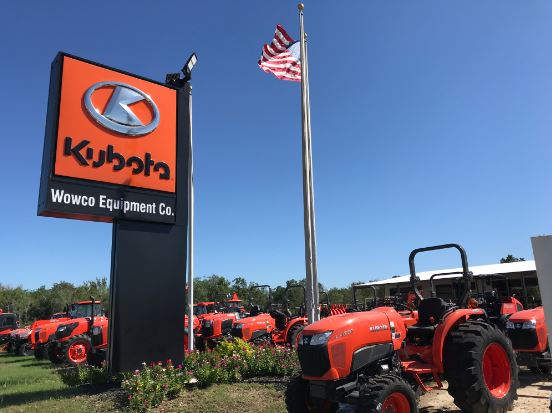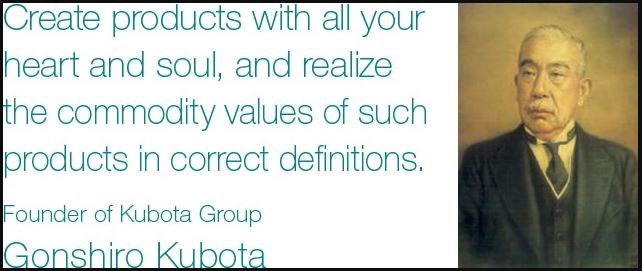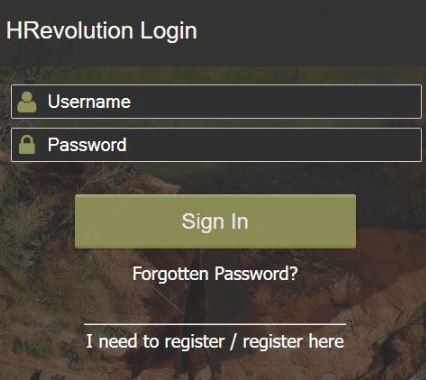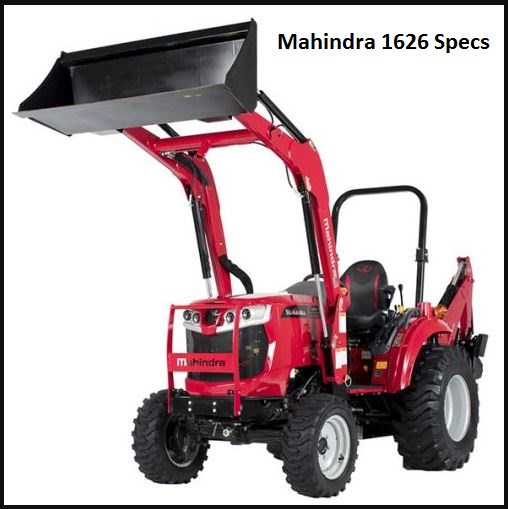
Kubota is a globally-recognized Japanese multinational corporation that manufactures farm equipment, construction machinery, and engines. With roots in 1890, the company has since blossomed into an expansive global brand with operations spanning 110 countries.
Who Owns Kubota? if this question is in your mind, so, read this article and more information.
Who Owns Kubota?

Kubota is a publicly traded company listed on the Tokyo Stock Exchange with an intricate ownership structure involving multiple shareholders, such as institutional investors and individual shareholders.
According to Kubota Corporation’s most recent annual report, as of March 31, 2021, the top ten shareholders are:
- The Master Trust Bank of Japan, Ltd. (Trust Account) – 7.95%
- Japan Trustee Services Bank, Ltd. (Trust Account) – 4.76%
- Nippon Life Insurance Company – 4.42%
- Japan Trustee Services Bank, Ltd. (Trust Account 9) – 2.66%
- Kubota Employees’ Stock Ownership Plan – 2.31%
- The Dai-ichi Life Insurance Company, Limited – 1.84%
- Mitsubishi UFJ Trust and Banking Corporation – 1.57%
- Sumitomo Mitsui Trust Bank, Limited – 1.50%
- Meiji Yasuda Life Insurance Company – 1.45%
- Japan Trustee Services Bank, Ltd. (Trust Account 5) – 1.40%
It is important to keep in mind the aforementioned details could change, and Kubota’s ownership structure could change over time as a result of events like mergers, purchases, and share buybacks.
Kubota Company Profile
Kubota Corporation is a Japanese multinational corporation that was founded in 1890 and is headquartered in Osaka, Japan.
The company operates in various industries, including agriculture, construction, and water treatment. Kubota is best known for its production of heavy equipment, such as tractors, excavators, and diesel engines.
Kubota has a global presence, with manufacturing plants and sales offices in countries such as the United States, France, Thailand, and China.
The company’s products are sold in over 130 countries, and it has a strong reputation for quality and reliability in the heavy equipment industry.
In addition to its heavy equipment offerings, Kubota also provides a range of related services, including financing, leasing, and equipment rental.
The company has also invested in research and development to create new technologies and products that meet the evolving needs of its customers.
Overall, Kubota Corporation is a leading player in the heavy equipment industry, with a long-standing reputation for quality and reliability.
The company’s commitment to innovation and customer service has helped it to become a trusted partner for businesses and individuals around the world.
kubota Subsidiaries
Kubota Corporation has a number of subsidiaries that operate in various industries and regions around the world. Some of Kubota’s notable subsidiaries include:
-
Kubota Agricultural Machinery India Pvt. Ltd. – a subsidiary based in India that manufactures and sells tractors and other agricultural machinery.
-
Kubota Holdings Europe B.V. – a subsidiary based in the Netherlands that oversees Kubota’s operations in Europe, the Middle East, and Africa.
-
Kubota Engine America Corporation – a subsidiary based in the United States that produces and sells diesel engines for use in a variety of applications, including generators, pumps, and construction equipment.
-
Kubota Manufacturing of America Corporation – a subsidiary based in the United States that manufactures and assembles a range of Kubota products, including tractors, mowers, and utility vehicles.
-
Kubota Australia Pty Ltd – a subsidiary based in Australia that offers a wide range of products, including tractors, excavators, and power generators, for the Australian and New Zealand markets.
These are just a few examples of Kubota’s many subsidiaries, which operate in a wide range of industries and markets around the world.
where is Kubota Manufactured?
Kubota manufactures its products in various countries around the world, including Japan, the United States, France, Thailand, and China. The location of manufacturing facilities depends on the type of product and the needs of the market where it will be sold.
Kubota’s main production facilities are located in Japan, where the company was founded and has its headquarters. Japan remains a key manufacturing hub for Kubota, particularly for the production of tractors and other agricultural equipment.
Kubota also has manufacturing facilities in the United States, where it produces a range of products for the North American market, including tractors, excavators, and utility vehicles.
In France, Kubota manufactures compact tractors and implements for the European market, while in Thailand, the company produces tractors, engines, and other agricultural machinery for the Southeast Asian market.
Overall, Kubota’s global manufacturing network allows the company to produce high-quality products that meet the specific needs of customers in different regions and industries around the world.
History of Kubota Corporation
Kubota prides itself on adapting to changing economic situations. Kubota, a small iron casting producer, capitalized on Japan’s aggressive foreign policies’ industrialization push.
At the turn of the century, the firm developed new cast-iron pipe production methods for municipal water systems.
Kubota started making machine tools around 1912, when the piping market peaked, to capitalize on World War I’s high industry demand. The depression between the wars spurred production innovation and diversity.
After World War II, the firm capitalized on major trends, rapid reindustrialization, and government-business partnerships by innovating and diversifying
Today, Kubota Corporation operates in three product groups: internal combustion engines and machinery, which includes farm and construction machinery; industrial products and engineering –
which includes pipe and fluid systems engineering, environmental control plants, industrial machinery, and industrial castings; and building materials and housing, which includes cement roofing materials and other housing equipment.
In Japan, there are 14 Kubota factories as well as subsidiaries and affiliates located throughout the world.
locations for Kubota company include Australia, Brazil, Canada, the United States, France, Germany, Spain, the United Kingdom, Taiwan, and Thailand. Kubota has invested more in research and development to maintain its position as a heavy industry leader.
KUBOTA Company History Timeline
2001 – a creation of gasoline and dual-fuel (gasoline/LP gas) engines that are water-cooled and adhere to LSI pollution standards in the United States.
2004 – Over 200,000 engines sold in the U.S. KEA starts to sell Kubota-brand diesel generators.
2015 – Introduction of WG3800. Kubota Engine Division, Canada becomes part of KEA.
Who builds Kubota?
Today, many brands outsource their product production to larger corporations. Therefore, it’s essential to determine if the parent company of a given brand is also responsible for manufacturing the brand itself.
Kubota Corporation of Japan manufactures all their tractors, meaning all Kubota tractors are built by them and not outsourced to another company. Furthermore, their American headquarters are located in Gainesville, Georgia where manufacturing headquarters are located.
Also, Read Kubota Tractors Price List 【2023】- USA



